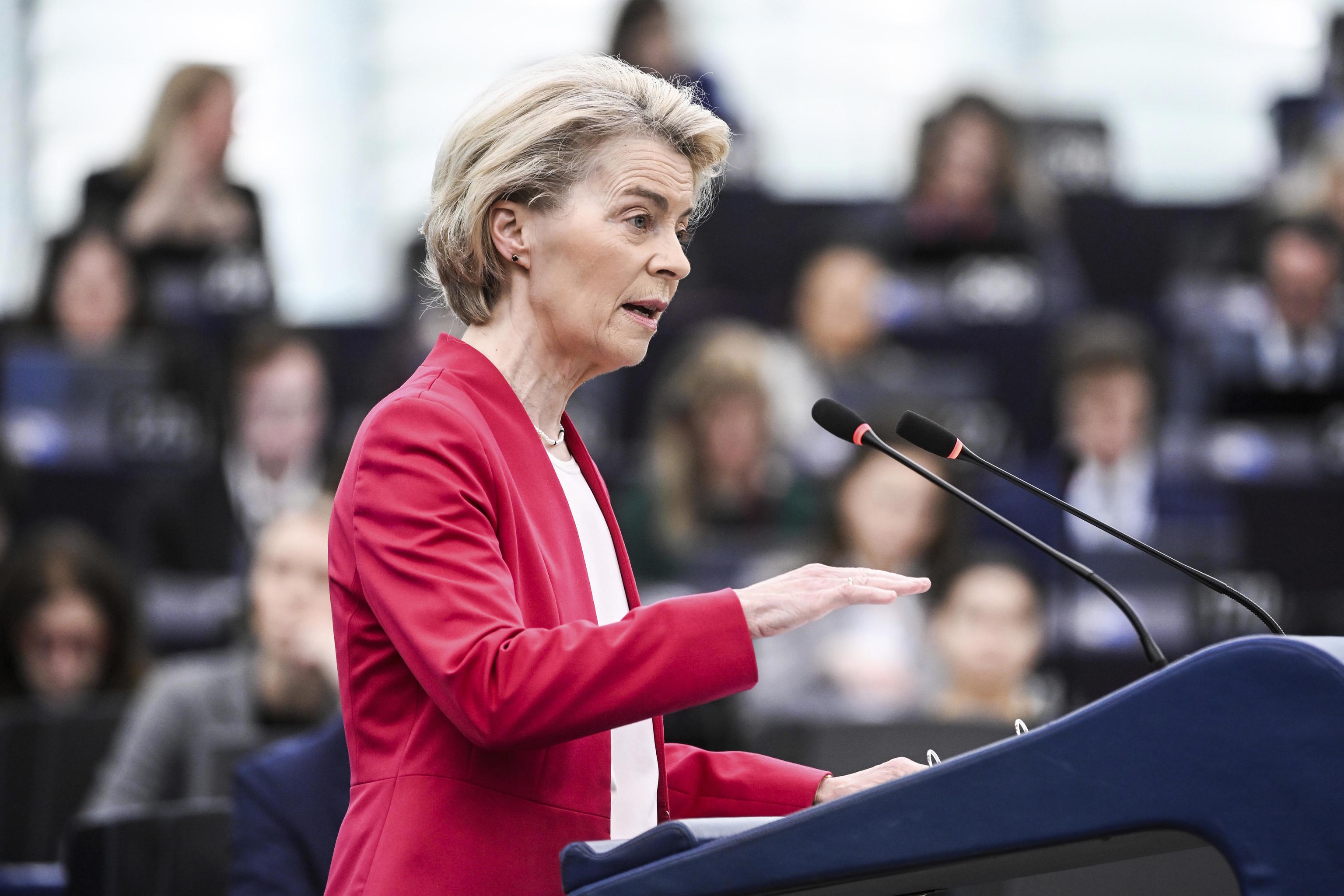The trade war between Europe and the United States is now a reality. Brussels has responded this morning to Donald Trump's tariffs on European steel and aluminum, which come into effect this Wednesday and apply a 25% tariff, with "countermeasures" worth 26,000 million euros.
"While the US imposes tariffs worth 28,000 million dollars, we respond with countermeasures worth 26,000 million euros. This matches the economic scope of the US tariffs. Our countermeasures will be introduced in two stages," explained the President of the European Commission, Ursula von der Leyen, in a statement released early today, adding that these are "strong but proportionate measures."
"As of this morning, the United States imposes a 25% tariff on steel and aluminum imports. We deeply regret this measure. Tariffs are taxes. They are bad for businesses, and even worse for consumers. These tariffs disrupt supply chains. They bring uncertainty to the economy. Jobs are at stake," continued the German official. And she warns of a situation that will directly affect citizens: "Prices will rise. In Europe and in the United States."
The EU's actions are divided into two steps. First, it will allow the suspension of the existing countermeasures from 2018 and 2020 against the US to expire on April 1, adding the first 8,000 million in tariffs and directly affecting products such as bourbon, Levi's jeans, or Harley-Davidson motorcycles. And second, "the Commission presents a package of new countermeasures" that will come into effect in mid-April, "after consulting with the Member States and stakeholders," adding another 18,000 million. The options here are extensive, ranging from soybeans to beef and pork or the industrial sector. Areas where, according to EU sources, the EU can easily find alternatives in Brazil, Argentina, or Canada, which will "hurt" the US economy.
The Commission emphasizes that it "regrets the US decision to impose tariffs" as they are considered "unjustified and disruptive," which has been the argument since Trump began threatening with a new trade war. Brussels also remains open to a possible negotiation to eliminate the tariffs.
"We are ready to engage in meaningful dialogue. I have instructed Commissioner for Trade Maros Sefcovic to resume talks to explore better solutions with the US," states Von der Leyen, highlighting in her statement that the "trade relations between the European Union and the United States are the largest in the world." "They have brought prosperity and security to millions of people, and trade has created millions of jobs on both sides of the Atlantic," she continues.
But Sefcovic himself has recalled today that he was already in Washington last month, met with US Commerce Secretary Howard Lutnick, and noted that "the EU is not the problem." "I argued that unnecessary burdens of measures and countermeasures should be avoided, but a partner is needed for that. It takes two hands to clap," stated the Trade Commissioner in Strasbourg, as reported by AP.
In other words, the European Commission does not have high hopes for a negotiated agreement, and Europe has responded firmly to the United States. From the EU capital, it was anticipated that they would not respond to every Trump threat, only reacting when concrete measures were taken. And that's exactly what they did: as soon as Trump's tariffs were firm, they reacted.
